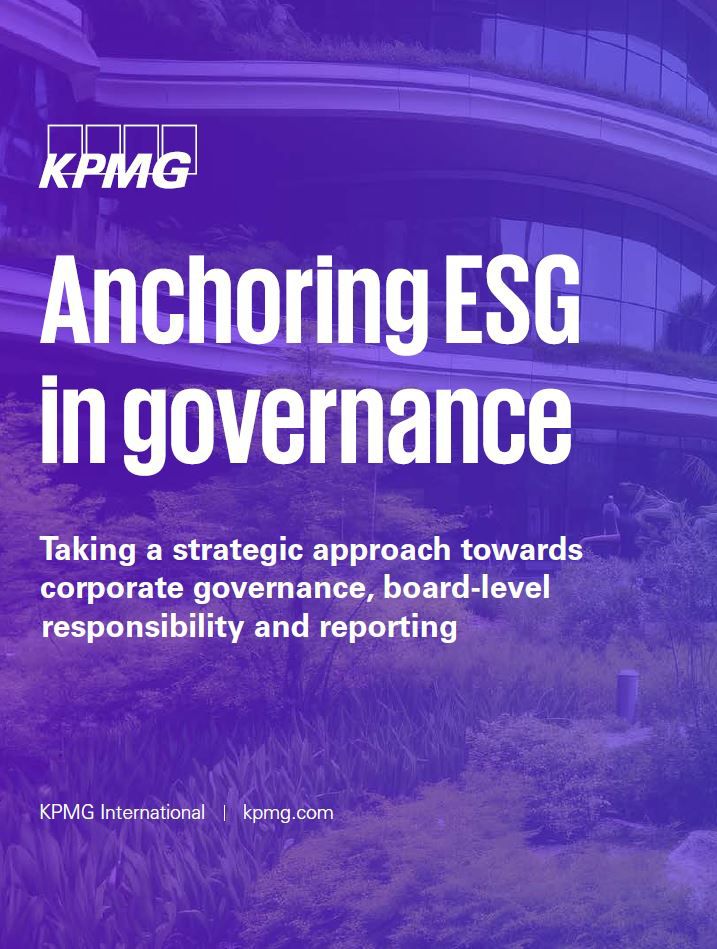"How to drive the sustainability work – from regulation to business opportunity"
Understanding the impact of sustainability throughout the entire value chain, including the supply chain, is a crucial factor in securing or losing business. Meet Amanda Abele, Sustainability Advisor at KPMG, and hear her views on how to drive the sustainability work – from regulation to business opportunity.
What does sustainability transformation mean to you?
Sustainability transformation is about future-proofing business models and operations to minimize negative environmental and social impact, and generate positive impact. It is about meeting the expectations of customers, employees, society, and other stakeholders, and about living up to regulatory demands. To succeed with the transformation, companies must see sustainability as more than a compliance or reporting exercise or a cost driver. If done right, sustainability can drive growth, profitability, new business opportunities, and markets.
"Sustainability performance can be the determining factor in securing or losing business."


How does KPMG enable a smooth sustainability transformation from an advisory perspective?
One key (and often overlooked) success factor is the role of technology. Driven by new regulations, sustainability management has become tightly linked to data management but often lags behind other corporate functions in terms of digitalization. Technology should be viewed as an accelerator for sustainability transformation and often fits well with companies' overall digitalization agendas. We combine sustainability and technology expertise to support our clients' sustainability transformations.
KPMG also understands that sustainability transformation means different things in different industries. The priorities for industrial manufacturing will differ from those of the financial services, healthcare, or consumer goods industries. With our deep sector knowledge, we understand the challenges and opportunities relevant to the industry.
How can solid work with sustainability provide growth for organizations?
A great example of the business case for sustainability is circularity: for manufacturing companies that heavily depend on material inflows like steel, successfully adopting a circular business model can lead to substantial cost savings and the creation of additional sources of revenue.
What are some of the challenges clients face when they undertake sustainability transformation?
Translating corporate ambitions, targets, and strategies into tangible actions across various business units and functions can be challenging. This involves integrating sustainability into the day-to-day activities of product development, research and development, operations, procurement, supply chain, human resources, and more. Currently, many companies rely heavily on their corporate sustainability function to drive sustainability initiatives, but there is a need to fully embed sustainability into practical actions throughout the entire organization.
Another challenge is navigating the complex and ever-changing landscape of stakeholder demands and expectations, especially from customers and regulators. For companies with a global presence, the sheer number of sustainability-related regulations can feel overwhelming, and the constant rate of change adds to the complexity.
What difference does KPMG make for the individuals, business, and our society?
This is clear to me: sustainability performance can be the determining factor in securing or losing business. That’s why it is crucial to view sustainability not just as a mere compliance or reporting activity, but rather as a chance to stand out in the market.
What do you think is the future of sustainability?
Sustainability is becoming a non-negotiable license to operate and will become increasingly embedded in business models and strategies. For us at KPMG, that means that sustainability will go from a stand-alone service offering to becoming a natural aspect of all our projects and deliverables. I hope that we will all become “fluent” in sustainability over time, so that we can all have a point of view on and support our clients in their sustainability efforts.
On a personal note, I am excited to see how the ways we consume will change and how things we have previously taken for granted will seem crazy in the future.
 "
"
Anchoring ESG in governance
Sustainability is growing in strategic importance for companies, with increasing reporting requirements on environmental, social and governance (ESG) as well as other demands on corporate structures regarding sustainability.
Download report >
Meet the sustainability experts
This is what we can do for you
Talk to us about sustainability
Moa Cedhamre
Senior Manager, Advisory and Sustainability Services
KPMG in Sweden
Christopher Larsson
Senior Manager, Assurance & Sustainability Services
KPMG in Sweden
Nazrin Huseinzade
Manager, Legal Services
KPMG in Sweden



